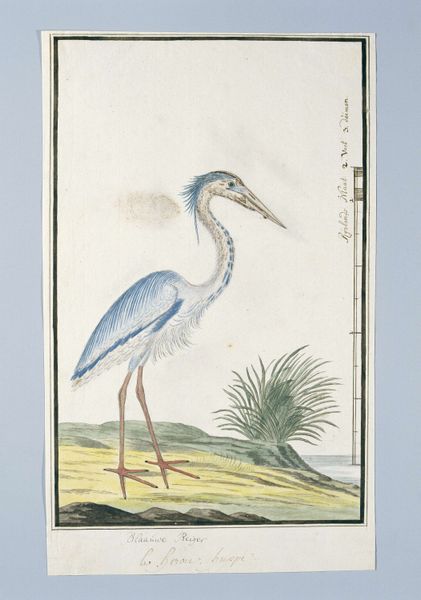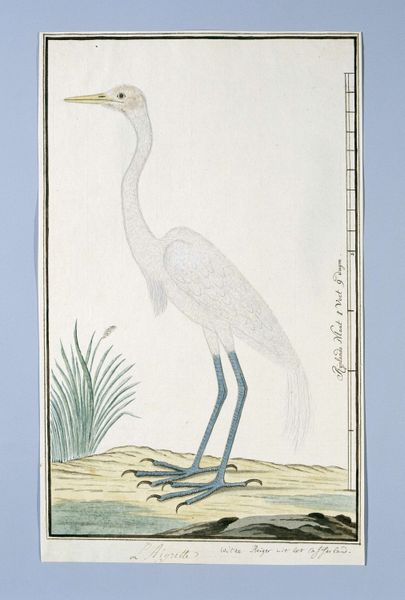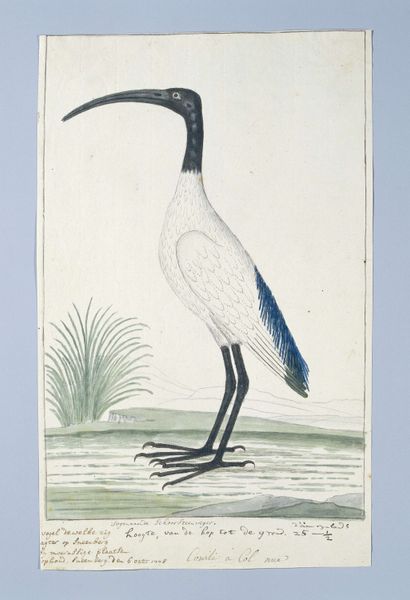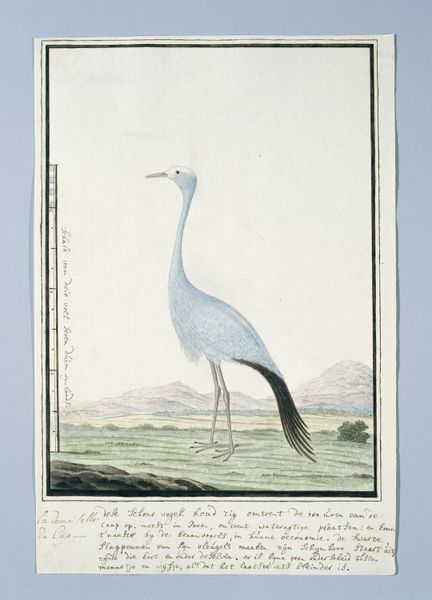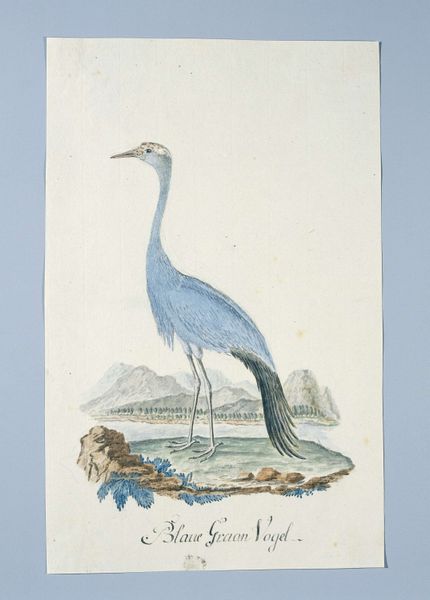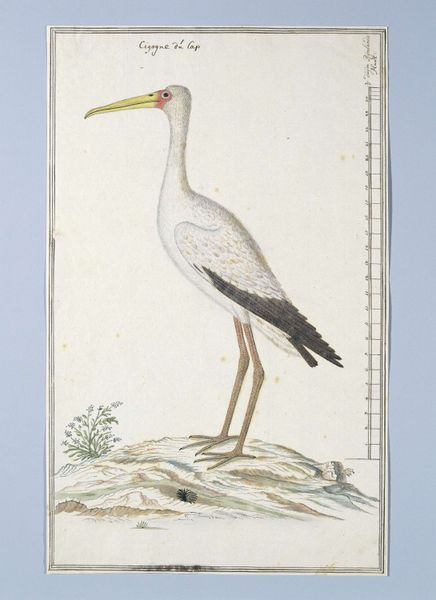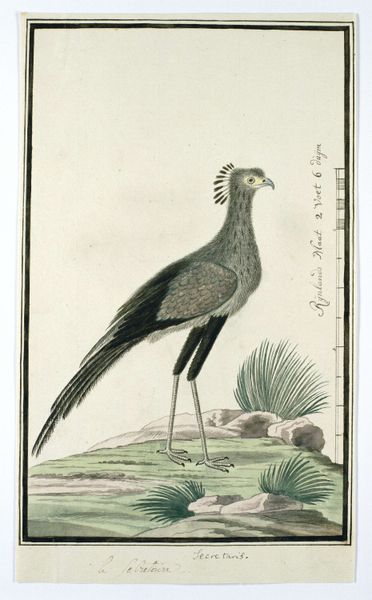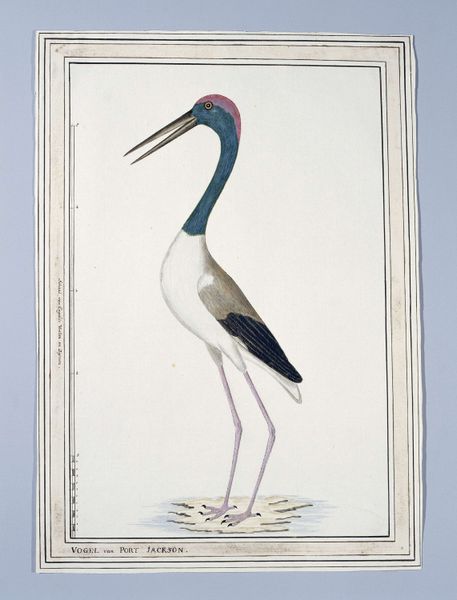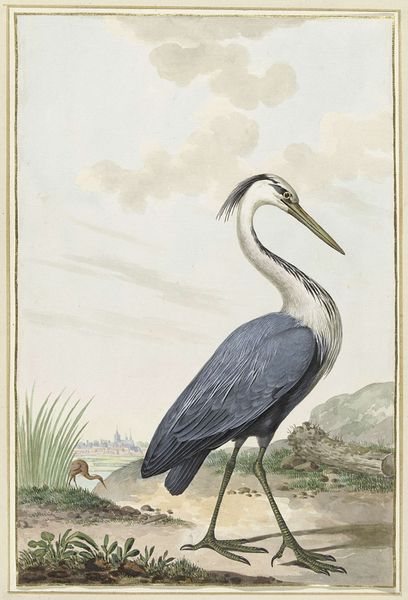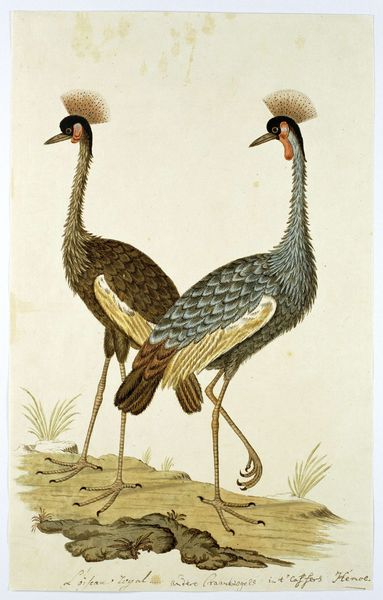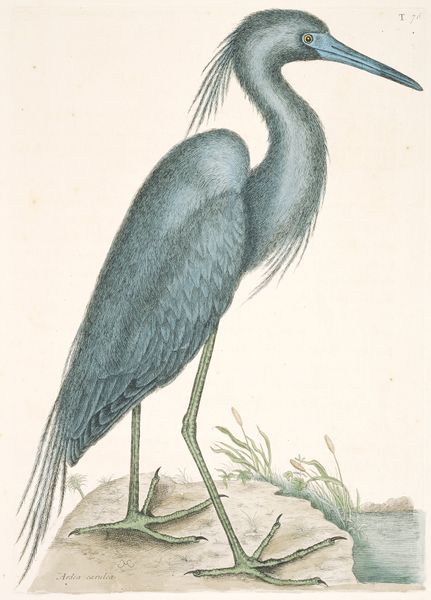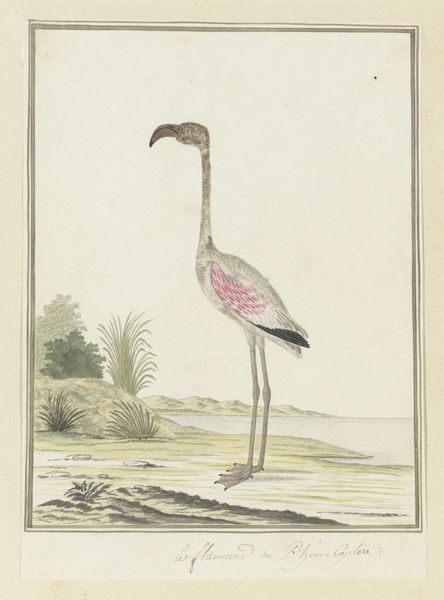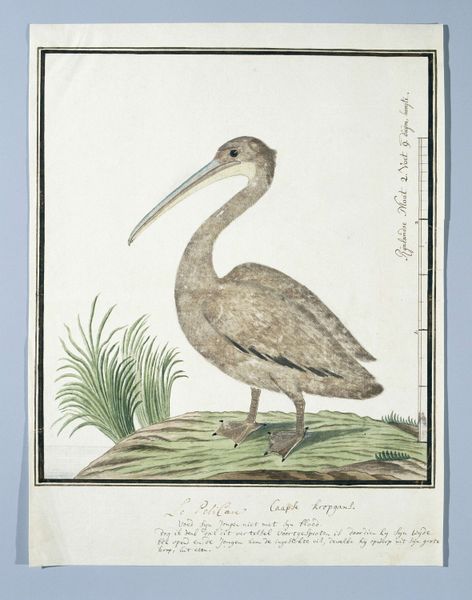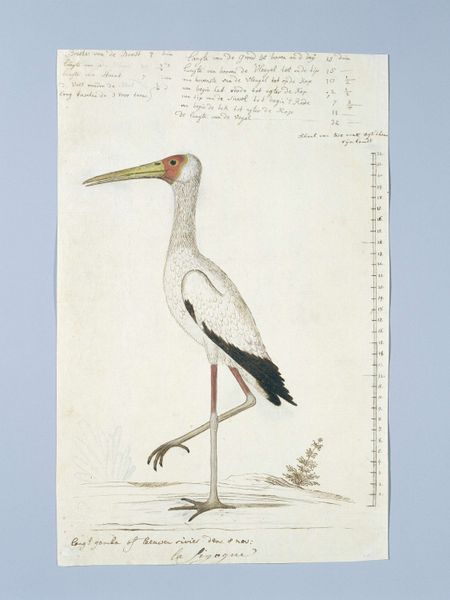
Grus carunculatus/ Bugeranus carunculatus (Wattled crane Possibly 1777 - 1786
0:00
0:00
drawing, watercolor
#
drawing
#
water colours
#
animal
#
landscape
#
watercolor
#
coloured pencil
#
line
#
watercolour illustration
#
realism
Dimensions: height 660 mm, width 480 mm, height 408 mm, width 251 mm, height 383 mm, width 235 mm
Copyright: Rijks Museum: Open Domain
Robert Jacob Gordon sketched this Wattled crane with pen and watercolour. The crane, with its long neck and elegant stature, has long carried symbolic weight across cultures. The image of the crane, or stork, as a symbol of birth, is a motif that stretches back to ancient times. While Gordon may not have intended to directly invoke this association, the symbolic power of the crane lingers in our collective memory. In ancient Greece, the crane was associated with Apollo, the god of light, reason, and the arts, linking the bird to intellect and vigilance. This bird also appears in other contexts, such as the story of Ibycus. Consider how the crane's poised stance and watchful gaze might also evoke a sense of alertness and contemplation, drawing on our shared subconscious understanding of this bird as a symbol of higher awareness. In myth, folklore, and art, these animal forms recur, reflecting how humans express fundamental emotions and psychological states. The crane is no different; we are constantly seeking to understand our place in the world.
Comments
No comments
Be the first to comment and join the conversation on the ultimate creative platform.
